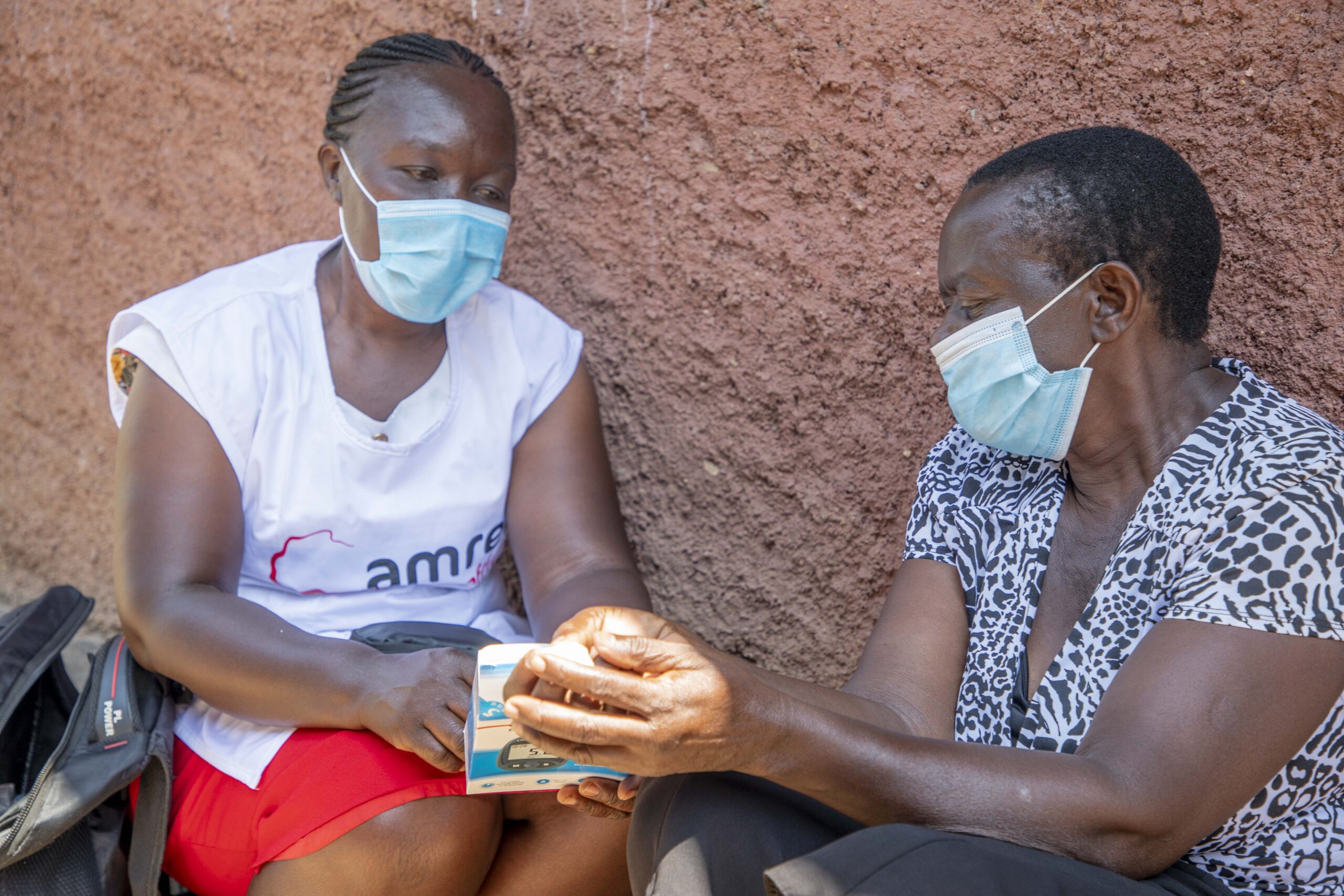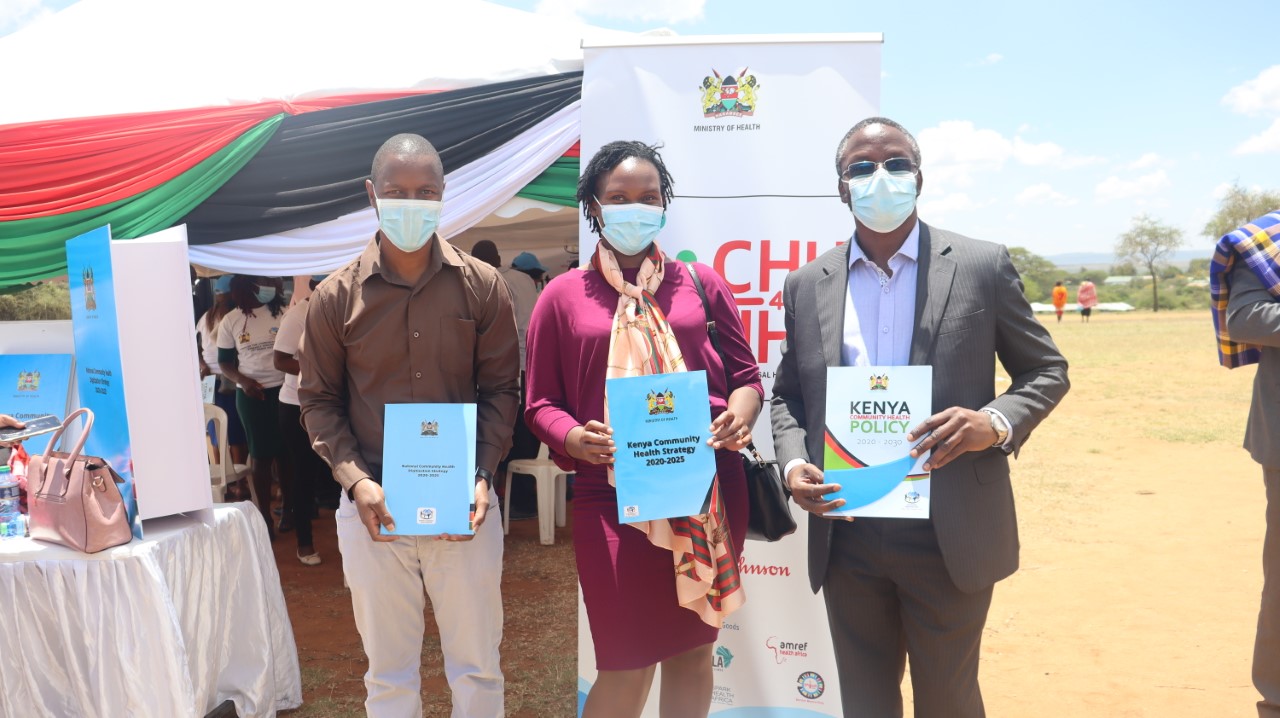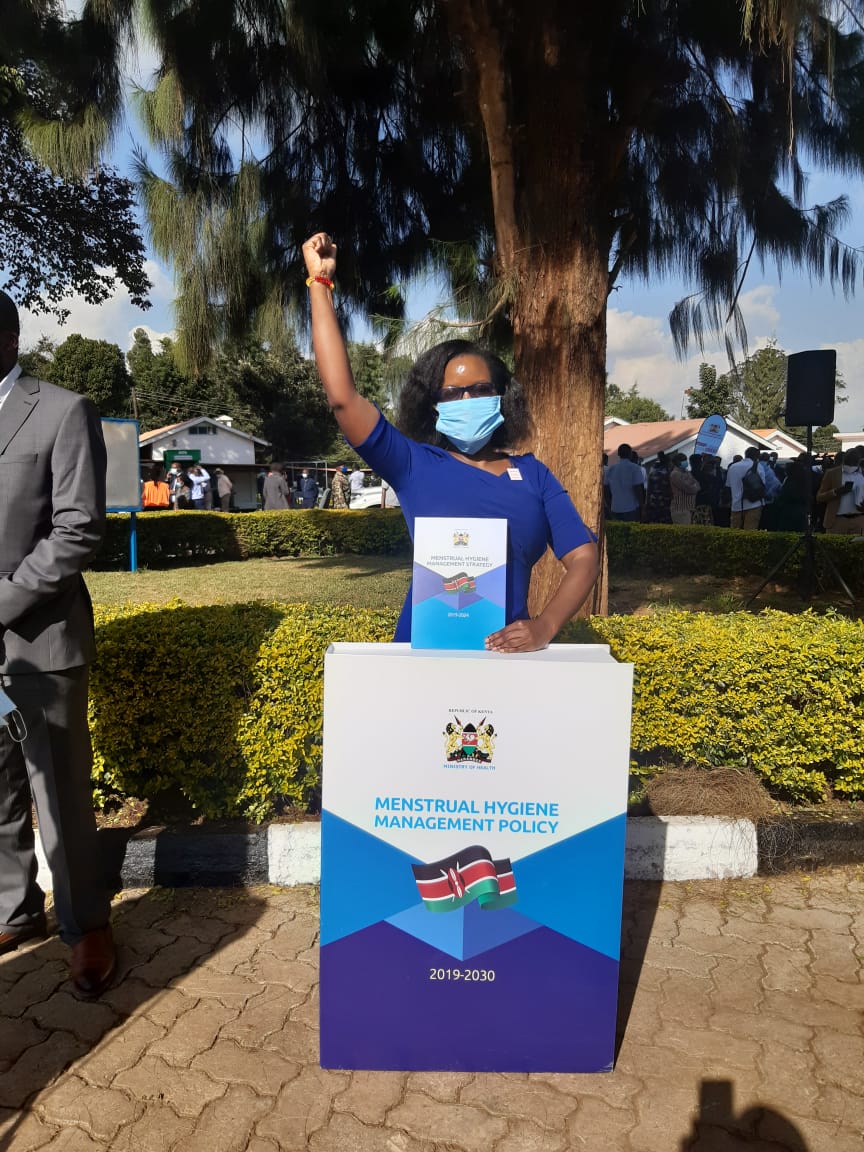I am: Untitled
Thursday, 4 July, 2019

By Arthur Mwai
A protected well without a donor inscription is like a new-born baby without an official name – much loved and highly-valued. Of course the locals have always had a name for the conventional Oluchina well that is positioned at a major crossroad of footpaths that interconnect the many homesteads that draw water from this well.
As we waited for the Water Management Committee members to arrive for the assignment, I wondered…what if this conventional well could talk?
If The Oluchina Well Could Talk
I have always existed underground in a not-so secret aquifer. Sometimes people refer to me as ‘Blue Gold.’ They walk long-distances every day to me. They thirst after me, both animals and humans. Plants shrivel without my essence. Without me, there is no life.
I was discovered many years ago, by men hired by Oluchina, then a young teacher at Mbarakachembe Primary School, an Amref project school just a few metres away.
Back then, I had for many seasons watched the young teacher struggle to meet the water costs for his growing homestead and livestock. In the long harsh Malindi summers and the sketchy rainy seasons, I watched and waited. After the initial joy of striking blue gold, Oluchina’s hired men walled up my sides, sides that they had dug to prevent the earth from caving in. But they forgot that a well has to be covered up properly. I cannot blame them though, because at that time, they had neither the understanding nor means to protect their precious water.
Over the years, all manner of trash was thrown in, while they fetched my water with buckets and dirty ropes which also served as tethers for zero-grazing goats. Human filth made my water unsafe for drinking, with disastrous effects for those who drank it anyway.
How It Was Before
Sometimes they would lower in a man to take out the filth. For a few days, my water was clean. But the filth always found its way back in – intentionally and unintentionally. I once heard the women talking (as they usually do whenever they come to fetch water in the evening) about a child who had fallen into an old open conventional well a few kilometres away and died. From then on, the villagers stopped sending their children to fetch water. It was too risky.
Women bitterly complained to their husbands about the struggles of fetching water for all household needs. Some husbands got their humble homes connected to piped water at a substantial cost, “Sigh! The struggle is over,” they said to themselves. But it was not.
Piped water is neither free nor reliable, especially for homesteads with an average size of 11 members. My water was free but they could not drink it or use it for cooking as long as the filth kept falling in. They had to do something; they had to find a way to make this precious community resource more useful.
A Helping Hand in the Dark
Beatrice, Oluchina’s wife happened to stumble upon another well during one of her women’s group meetings. The water source was well-covered with an impressive pump and some inscriptions. What caught her eye was the word ‘Amref.’
“I had heard stories of Amref’s work in the Gahaleni area. They had made well water safe by covering it, and easy to access by installing a hand pump. But when I saw that shallow well, I came and told my husband that we must seek out Amref so that they can do to our well what they did for the others,” she says.
And so the journey began. I was vetted, my water tested and the community trained on how to manage me once I was covered up. In other words, I was protected. I still do not have a formally-inscribed name on the sides of my wall, but I heard whispers today, of prospective names that the community had come up with, and the final name that they had agreed on.

Water Management Committee members with their eyes on the future
But even after they inscribe a name, my safe and clean water will perpetually be free. For them, their children and grand-children, strangers passing by the roadside, cows, birds, cats – for all manner of life that depends on me for survival. I shall give my gift freely, just like the donor who chose to make my water safe and easy to access for this wonderful community.
Freely in love we give, expecting nothing in return.
Seventeen homesteads with an average of 11 members spanning different generations are dutifully served by this humble conventional well. One hundred and eighty sevens souls.
The Coastal School Health Project (CSHP) has a long and rich history of increasing access to clean and safe water to marginalised communities. It started in Kaloleni back in 1998. Back then I was just in primary school and now here I am writing about it.
To date, 32,000 community members and 92,500 pupils have access to clean and safe water thanks to the project. Over 700 classrooms that will be used by many generations in Kilifi have been built. That is like 28 Amref-built schools. Amref Italy does a wonderful job of fundraising for the project, one amongst many in Kenya, Ethiopia, South Sudan and Mozambique.
Amref Health Africa teams up with African communities to create lasting health change.





Comments
No comments found.